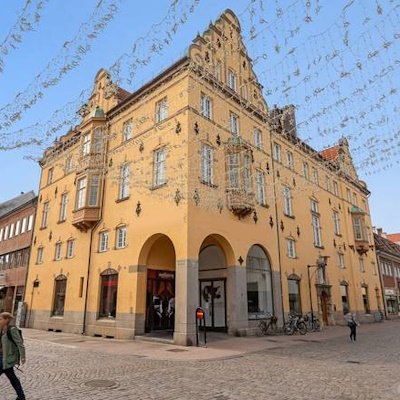Folkets Rådförsamling

Folkets Rådförsamling (or People's House of Vittmark) is the third legislative body at the federal level beside the directly elected Federal Parliament (Förbundsdag) and appointed House of States (Förbundsting) in Vittmark. This federal body represents the recognised ethnic, religious and cultural minorities within Vittmark and has 8 seats.
History and tasks
After the reforms of 7611 the non-territorial states for the Bengtists and Fjällsta lost their status. At the same time, the large minority of Aldsay people in West Hagen became a factor in politics as well. As an extra safeguard for their interests, budget proposals and decisions on legislation also need to pass a special People's House. The task of this House is to minimise the effects of federal government decisions in continuing the lifestyle of these recognised minorities.
Decisions in the People's House need to be unanimous, which is defined as "no one opposing the proposal". This leaves room for deputies to lay down their vote, not supporting or opposing a proposal and still reaching unanimity.
Composition and appointment
The People's House has 8 seats, two for each minority and two representing the Mellanhand, Dölmer majority. While the Aldsay are an ethnic, linguistic and religious minority, the Bengtists only are a religious minority, being a non-interventionist Mennity Orkanan congregation. Fjällsta's background is more of a cultural nature, but there is a religious aspect here as well since the Stift is the only larger one without its own territory, unlike Iunsala (Ådalen), Kulla (Östervallen), Månsta (Liden) and Hagen. Smaller minorities, like the Härska language and smaller Orkanan congregations (stonds), are not represented at the federal level. But similar councils exist in many of the Vittmarker states and in many cases also on the local level of government. Those are however only advisory, while the People's House can veto any decision made in parliament.
Members of the People's House are appointed by the respective groups, for the Bengtists and Fjällsta the stifts, for the Aldsy by the Sunnist Stift of Austland and for the Mellanhand majority by the territorial Storstifts. The latter are appointed for 4 years, after which a different Stift will appoint a new member, thus changing the represented Stifts every other year.
Organisation and accommodation
Each appointed member has its own staff of a personal assistant and technical assistant, which are a part of the representation's organisation. These prepare the issues being discussed and decided upon. There is a staff of 12 people working both on incoming topics and handling the decisions made in the house. This is the House's staff, headed by a so-called kanslihuvud (Head of the chancellery) as a civil servant type organisation. The entire organisation is located in the former hospital building Lindröse in the walled government complex of Östvallen, near the Royal Palace and parliament building. For its sessions, the People's House uses facilities like committee assembly rooms at the parliament building.